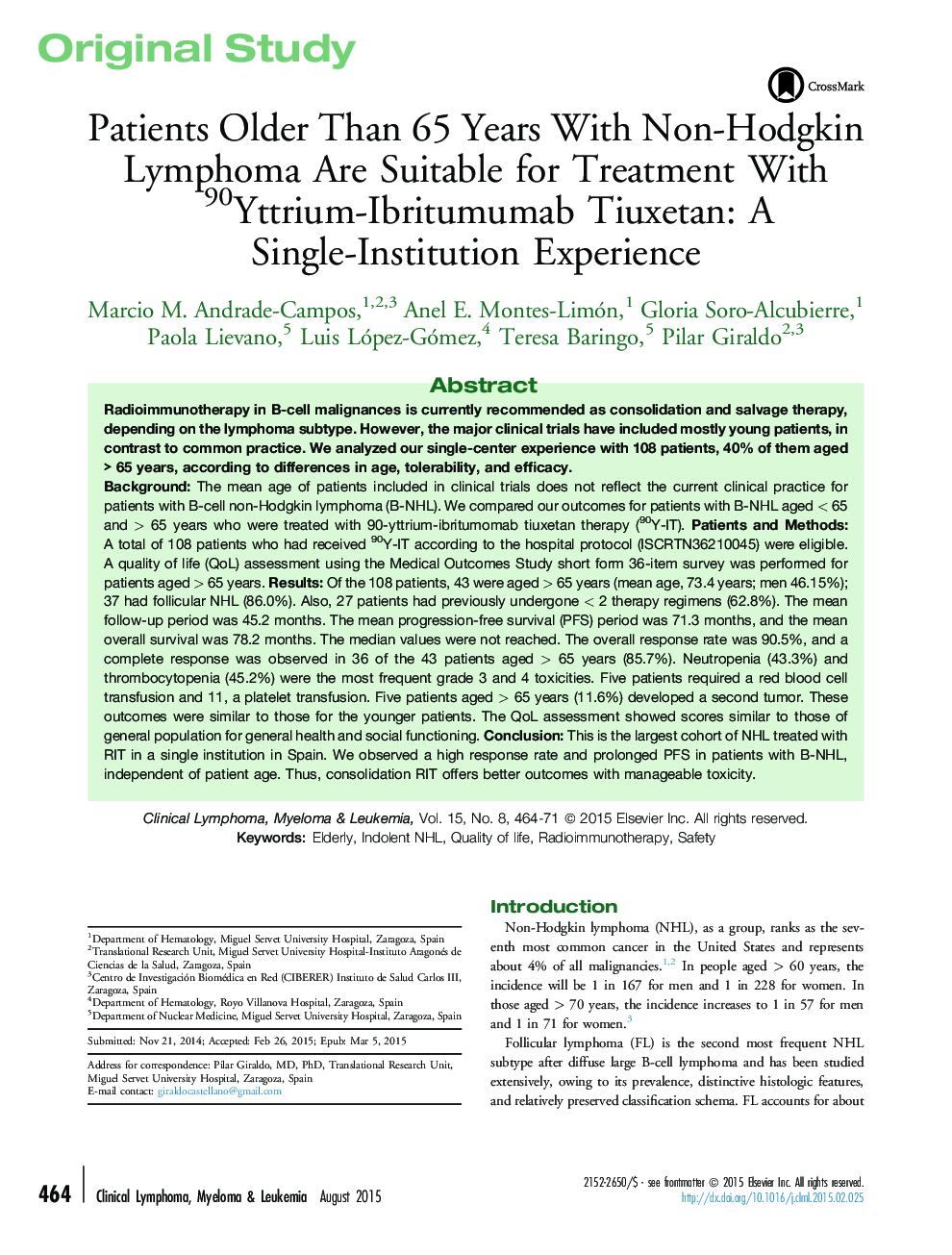| Article ID | Journal | Published Year | Pages | File Type |
|---|---|---|---|---|
| 2754532 | Clinical Lymphoma Myeloma and Leukemia | 2015 | 8 Pages |
BackgroundThe mean age of patients included in clinical trials does not reflect the current clinical practice for patients with B-cell non-Hodgkin lymphoma (B-NHL). We compared our outcomes for patients with B-NHL aged < 65 and > 65 years who were treated with 90-yttrium-ibritumomab tiuxetan therapy (90Y-IT).Patients and MethodsA total of 108 patients who had received 90Y-IT according to the hospital protocol (ISCRTN36210045) were eligible. A quality of life (QoL) assessment using the Medical Outcomes Study short form 36-item survey was performed for patients aged > 65 years.ResultsOf the 108 patients, 43 were aged > 65 years (mean age, 73.4 years; men 46.15%); 37 had follicular NHL (86.0%). Also, 27 patients had previously undergone < 2 therapy regimens (62.8%). The mean follow-up period was 45.2 months. The mean progression-free survival (PFS) period was 71.3 months, and the mean overall survival was 78.2 months. The median values were not reached. The overall response rate was 90.5%, and a complete response was observed in 36 of the 43 patients aged > 65 years (85.7%). Neutropenia (43.3%) and thrombocytopenia (45.2%) were the most frequent grade 3 and 4 toxicities. Five patients required a red blood cell transfusion and 11, a platelet transfusion. Five patients aged > 65 years (11.6%) developed a second tumor. These outcomes were similar to those for the younger patients. The QoL assessment showed scores similar to those of general population for general health and social functioning.ConclusionThis is the largest cohort of NHL treated with RIT in a single institution in Spain. We observed a high response rate and prolonged PFS in patients with B-NHL, independent of patient age. Thus, consolidation RIT offers better outcomes with manageable toxicity.
